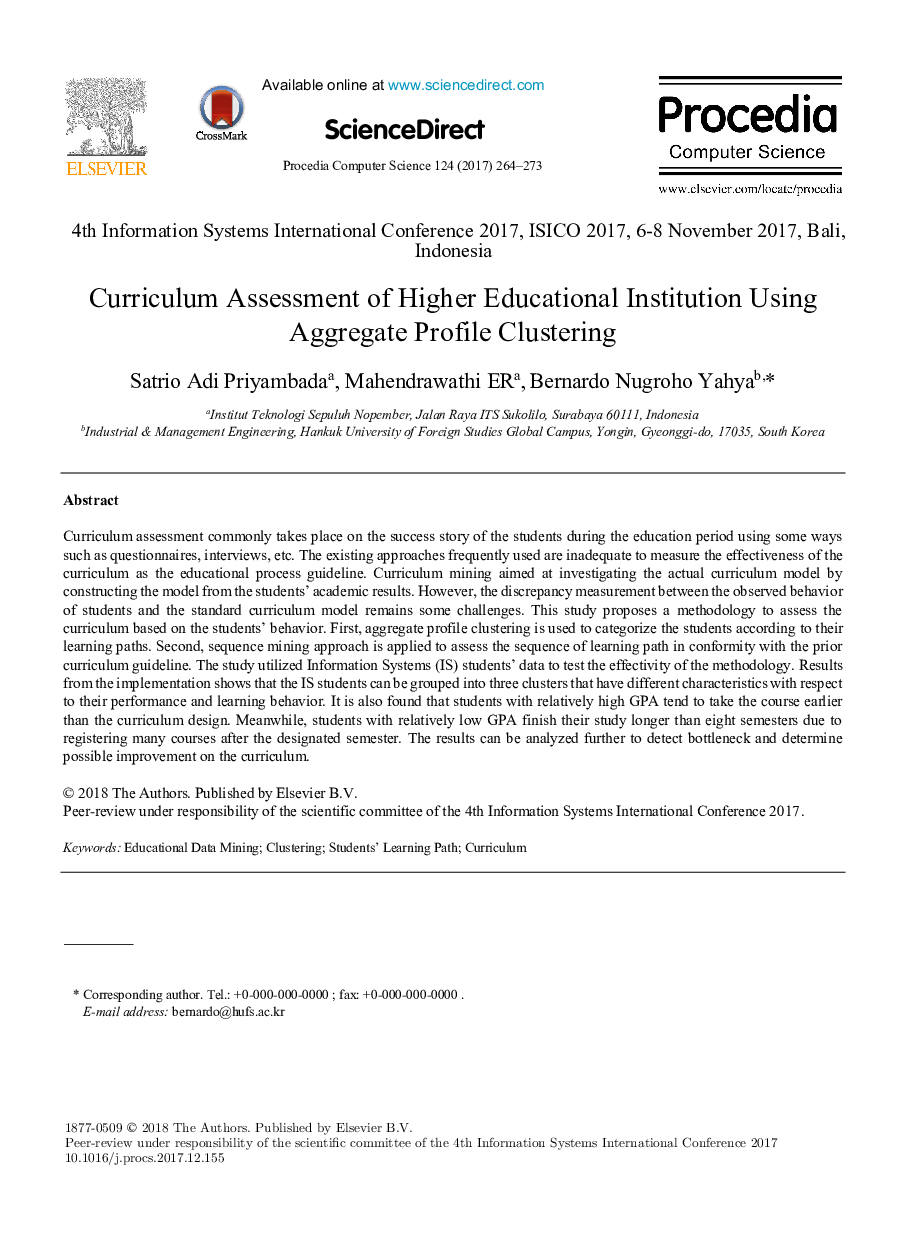| Article ID | Journal | Published Year | Pages | File Type |
|---|---|---|---|---|
| 6901078 | Procedia Computer Science | 2017 | 10 Pages |
Abstract
Curriculum assessment commonly takes place on the success story of the students during the education period using some ways such as questionnaires, interviews, etc. The existing approaches frequently used are inadequate to measure the effectiveness of the curriculum as the educational process guideline. Curriculum mining aimed at investigating the actual curriculum model by constructing the model from the students' academic results. However, the discrepancy measurement between the observed behavior of students and the standard curriculum model remains some challenges. This study proposes a methodology to assess the curriculum based on the students' behavior. First, aggregate profile clustering is used to categorize the students according to their learning paths. Second, sequence mining approach is applied to assess the sequence of learning path in conformity with the prior curriculum guideline. The study utilized Information Systems (IS) students' data to test the effectivity of the methodology. Results from the implementation shows that the IS students can be grouped into three clusters that have different characteristics with respect to their performance and learning behavior. It is also found that students with relatively high GPA tend to take the course earlier than the curriculum design. Meanwhile, students with relatively low GPA finish their study longer than eight semesters due to registering many courses after the designated semester. The results can be analyzed further to detect bottleneck and determine possible improvement on the curriculum.
Related Topics
Physical Sciences and Engineering
Computer Science
Computer Science (General)
Authors
Satrio Adi Priyambada, E.R. Mahendrawathi, Bernardo Nugroho Yahya,
